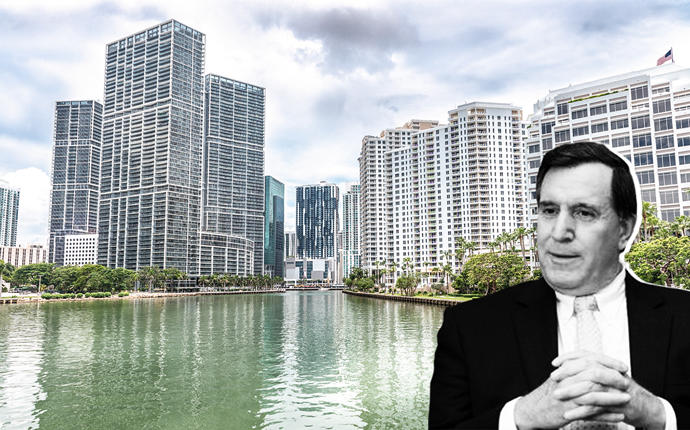Trending
Miami may seek $250M for affordable home-buying program
City to discuss legislation and task force for 2.5K program before March

The Miami City Commission is looking to seek $250 million in loans and grants to create an affordable home ownership program with at least 2,500 residential units.
Proposed by commissioner Joe Carollo, the pilot program would use the funds to build more than 600 two-bedroom condos and 1,900 one-bedroom condos in all five of Miami’s city commission districts. The money would also be used to obtain land where necessary.
The city’s administration is to come back to the commission with a refined ordinance before March. The legislation will include an 11-member task force consisting of five city department heads, five experts related to finance and real estate development, and the executive director of the Miami Parking Authority.
Carollo, who was mayor of Miami in the late 1990s, said he’s pushing the legislation because affordability in the city is “the biggest crisis we have had in one district or the other.” Simply offering incentives for builders to construct workforce rentals will do little to prevent Miami residents from being pushed out by skyrocketing rents, he added.
“We are approving huge projects where developers are laughing all the way to the bank,” Carollo said during a city commission meeting on Thursday. “They give us 10 or 15 percent low-income and workforce housing, and we have no one on top of it to enforce it. And [developers’] idea of low-income… no one [in Miami] can afford it. The people who fill the beautiful buildings [come from] other parts of Miami-Dade County or the state.”
Carollo said he’s confident the city can build housing at below $175 a square foot if such projects are built without amenities like a large lobby or a gym. And, through a lottery system, the city can offer no-interest loans to people already living within the city.
“Once we build, people get their mortgages, and we get our money back,” Carollo said. “We can decide to keep it going or stop it.”
Besides grants, Carollo said the city has more than enough collateral to get private loans from banks.
“This city has an excess of $10 billion that we own in properties, and that’s a conservative figure,” Carollo said. “For us to borrow $250 million is very feasible.”
The funds will be separate from the $85 million the city has left in capital bond funds set aside for affordable housing, Carollo added.
How the program will be run still has to be worked out. “We could form a housing authority or a different entity, maybe [we can] even [do this] internally within the city. I’m open to all ideas,” Carollo said.
Carollo also wants input from the Miami Parking Authority to ensure any projects have adequate parking. “I know some have this train of thought that we can do away with parking,” Carollo said, referring to regulations in the downtown area that don’t require parking, as well as pitches from developers who say millennials don’t like cars. “The reality is that in Miami, we still need parking.”
Commissioner Manolo Reyes said that any task force should include people familiar with banking as well as real estate developers. “We should include some players that are actually building and who want to cooperate with this program,” Reyes said.
Deputy City Manager Joe Napoli said the city is already due to have a workshop on the city’s affordable housing master plan in January. Carollo, though, didn’t want to wait. “We need action. I feel, and in all frankness, that we sat here for two years and [did] not accomplish anything solid,” he said.




